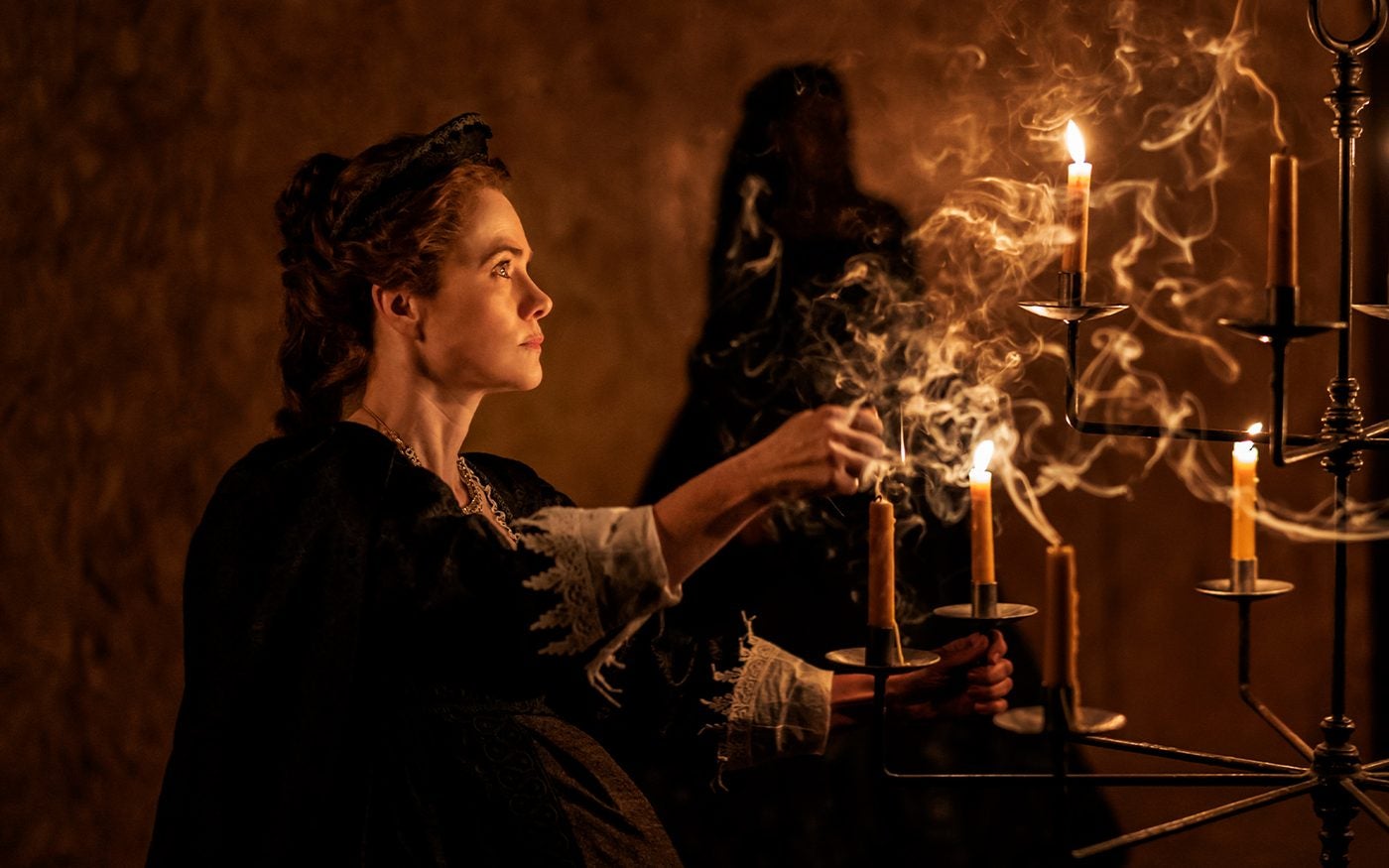Swive [Elizabeth] review, Sam Wanamaker Playhouse: Clever, funny and indignant
Ella Hickson has joined forces with director Natalie Abrahami, whose production shifts between grimly gleeful anachronism and historical empathy

Your support helps us to tell the story
From reproductive rights to climate change to Big Tech, The Independent is on the ground when the story is developing. Whether it's investigating the financials of Elon Musk's pro-Trump PAC or producing our latest documentary, 'The A Word', which shines a light on the American women fighting for reproductive rights, we know how important it is to parse out the facts from the messaging.
At such a critical moment in US history, we need reporters on the ground. Your donation allows us to keep sending journalists to speak to both sides of the story.
The Independent is trusted by Americans across the entire political spectrum. And unlike many other quality news outlets, we choose not to lock Americans out of our reporting and analysis with paywalls. We believe quality journalism should be available to everyone, paid for by those who can afford it.
Your support makes all the difference.“What must I do to be taken seriously?” bellyaches the Prince of Wales in the film version of Alan Bennett’s The Madness of George III.
“I tell you, sir, to be Prince of Wales is not a position. It is a predicament.”
He should be so lucky. Swive [Elizabeth], Ella Hickson’s clever, funny and indignant new play, takes a haunting look at the predicament of Elizabeth I, who reigned for 44 years as queen of England. I tell you, sir – the play effectively declares – to be queen in those days minus a husband/consort, or birth children who can carry on the line, is far from a luxurious position. It is a gynaecological nightmare. It is to be a womb-without-a-view that is monitored obsessively by interested parties.
Among these are the competitive male favourites at court, the chambermaids in the pay of foreign powers who inspect your bed linen for signs of bleeding, and female relations who may be about to crush you, emotionally and dynastically, by carrying pregnancies of their own to term.
And the meaning of the title? Put it this way: a play about Elizabethan attitudes to retail might be called “Shopping and Swiving”.
In The Writer, presented at the Almeida a couple of years ago, Hickson wrote the most gauntlet-throwing and audacious play yet about the creative restrictions that aspiring women continue to encounter in today’s theatre. Now she has joined forces with director Natalie Abrahami, whose production shifts between grimly gleeful anachronism and a historical empathy, to expose the nerve endings of another era – different yet with clear parallels.
You can see this in the restive way the show plays around with its site-specific qualities. Designer Ben Stones has covered most of the Playhouse’s jewel-box attributes with bare chipboard, emphasising the intense geometry of the intrigue-ridden power play.
You somehow pick up that though there is an obsession with state security, there’s an inbuilt insecurity in the period’s use of that very word. It could mean, treacherously, the complacent overconfidence that could leave you vulnerable to attack.
The middle-aged Elizabeth is played by the compellingly querulous Abigail Cruttenden. She utters the deceptively louche-sounding first words about the fate of her mother, Anne Boleyn, and the epoch-making bust-up with Rome: “My mother seduced a man so successfully that he altered the constitutional history of this country.”
We cut to the adolescent Elizabeth (played with intellectual gravity and a terrified sense of isolation by Nina Cassells). The idea that nothing succeeds like male succession has been so drummed into everyone that the 14-year-old, when she puts an exploratory hand on the lower stomach of Thomas Seymour (Colin Tierney), convinces herself, and thinks it’s required her to say, “It’s a boy – I can feel it.” The middle-aged Elizabeth wears a skirt emblazoned with the kind of lopsided glittery repro of one of her own icons, which looks to have been bought from one of the stalls on Camden Market.
From the outset, she pours scorn on the Playhouse as cultural repository: “The place is no more than five years old. What it creates is a false sense of security.”
It is telling, though, how eloquently the characteristic qualities underline the themes. The dousing of the candles of the lowered candelabra has never looked more like an attempt to create a new theatrical form: the snuff play. And though the Sam Wanamaker is one of the few theatres where you can contrive pitch darkness, the lights remain on when Nina Cassells calls “black out” at the end. It gives you the premonitory sense of unfinished business. Hugely stimulating.
Join our commenting forum
Join thought-provoking conversations, follow other Independent readers and see their replies
Comments